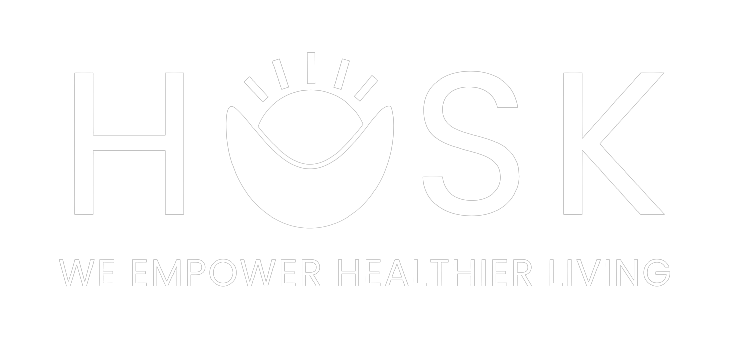
Crohn's Disease - What to Eat vs. What to Avoid During a Flare-up
What is Crohn’s Disease?
Did you know that 3 million Americans have Crohn’s disease? Affecting both men and women often in their adolescence, 20’s and early 30’s, Crohn’s disease causes discomfort in the digestive tract due to swelling and irritation. This is a form of inflammatory bowel disease (IBD) with symptoms ranging from weight loss, chronic diarrhea, abdominal pain, loss of appetite and rectal bleeding. Without a cure for Crohn’s disease, it is important to learn to manage symptoms to reduce flare-ups.
WHAT IS A FLARE-UP?
A flare-up is an unexpected triggering of the inflammation response in the gastrointestinal tract, causing Crohn’s disease symptoms to become present. A flare-up can be caused by stress, anti-inflammatory drugs (NSAIDs), bowel-irritating foods and skipping medications or taking the wrong dose.
WHAT TO AVOID DURING A FLARE-UP
While there are no set diet recommendations for Crohn’s disease. There are certain foods to avoid during a flare-up:
- Whole seeds and nuts
- High fiber foods such as whole grains, popcorn, and whole-wheat products
- Sweeteners will act as a diuretic causing diarrhea
- Raw vegetables
- Beans are high in fiber which can feel like sand paper against a fresh wound
- Fruit with skin and seeds
- Fatty, greasy foods like salami, sausage, fast food, and mayonnaise
- Spicy food and spices like cayenne and chili powder
- Dairy that is whole fat can be problematic
- Caffeine and alcohol
Avoiding these foods will reduce the inflammation in the bowels that result from a flare-up.
WHAT TO EAT DURING A FLARE-UP
The goal is to get back to remission and end the flare-up. Foods that can help reduce the symptoms of a flare-up are:
- Ground seeds and nuts will not irritate the bowels (such as ground flaxseed)
- Refined grains such as white bread, rice, pasta, rice cakes due to their lower fiber content
- Well cooked veggies will provide less irritation
- Fruits that are skinless like banana, cantaloupe, watermelon, or canned fruits
- Cooked oatmeal
- Lean meats like chicken, eggs, 95% lean ground beef or turkey, etc.
Calming the bowels with a diet that helps to reduce the inflammation will get you back on track to eating a nutritive diet.
ADDITIONAL TIPS TO HELP A FLARE-UP
Along with eating the right diet, following a few helpful tips can help speed up progress.
- Avoid using a straw, this causes more air into the body producing gas
- 4-6 small meals a day will allow the digestive tract to be less irritated
- Drinking enough fluids to stay hydrated and to help keep food moving through the body
- Boiled, steamed, poached, and grilled foods are the best options for food preparation limiting additional oil
- A multivitamin can be a good idea when diarrhea is present because of less absorption of vitamins, fats, minerals, proteins, carbohydrates, and minerals
- Keep a food journal. This allows you to personalize your food plan and eliminate food irritants
REMISSION FOODS
After a flare-up, a diet that is well-balanced is ideal. Slowly reintroducing the foods that have been avoided is best. Foods such as:
- Protein including a variety of lean meats, eggs, nuts and tofu.
- Probiotic foods such as yogurt or sauerkraut
- High calcium foods such as low-fat yogurt and milk, collard greens and kefir
- Fiber should be reintroduced unless specified by your provider to follow a low fiber diet. Foods such as beans, whole grains and bran may be included
- Fruit and vegetables should be consumed in a rainbow of colors. If seeds and skin are irritating the bowels, remove them
- Hydration is important to continue healthy digestion and bowel movements
Still maintaining a food journal is important. A journal provides a record of what you have been consuming and if irritation does occur, you will have the ability to identify the specific food items. Crohn’s disease affects each person a little differently; personalizing a diet plan that is specific to your body is key to managing symptoms and flare-ups.
QUICK & EASY “BAKED” APPLE RECIPE
For Crohn’s disease, it is easiest to digest fruit that is peeled and cooked. Adding the oatmeal provides fiber, while cinnamon is an antioxidant that helps reduce inflammation. To treat your gut, top it off with a dollop of low-fat yogurt which provides probiotics for smooth digestion. Switching out the butter for a healthy plant based oil will provide your gut with soothing omega-3’s to help reduce bowel irritation.
INGREDIENTS
- 1/3 cup Old Fashioned Oats
- ½ tbsp cinnamon
- 1 tbsp plant-based oil
- 1 tbsp honey
- 1 apple
- Plain low-fat yogurt
INSTRUCTIONS
- Peel and cut the apple into ¼ inch slices
- Lay the apple slices in a microwave-safe dish with the flat cut side down
- In a separate bowl mix the oats, cinnamon, oil, and honey
together, spreading the mixture on top of the apple - Place the dish in the microwave for 2 1/2 to 3 minutes
- Place a dollop of yogurt on top for additional decadence.
Tips:
- Measuring the oil before the honey will help to prevent the honey from sticking to the measuring spoon
- To make vanilla yogurt without sugar, add 1 teaspoon of vanilla or 1 vanilla bean to a 16-ounce container of low-fat yogurt
By Jessica Martin, MPH RDN LDN
Jessica Martin is a Registered Dietitian in the states of Delaware and Pennsylvania.
HOW CAN WE HELP?
References:
- Cleveland Clinic. (2020). What not to eat if you have Crohn’s Disease, 9 foods to avoid during
flare-ups. Cleveland Clinic
https://health.clevelandclinic.org/what-not-to-eat-if-you-have-crohns-disease/ - Crohn’s Disease (2021). Crohn’s disease. Cleveland Clinic.
https://my.clevelandclinic.org/health/diseases/9357-crohnsdisease+_ga=2.247278276.1106546667.16382871211580321800.1637774691&_gl=1*1u9wq55*_ga*M+TU4MDMyMTgwMC4xNjM3Nzc0Njkx*_ga_HWJ092SPKP*MTYzODI4NzEyMS4yLjAuMT+YzODI4NzEyMS4w - Crohn’s & Colitis Foundation (2021). What should I eat? Crohn’s & Colitis Foundation Inc.
https://www.crohnscolitisfoundation.org/diet-and-nutrition/what-should-i-eat
